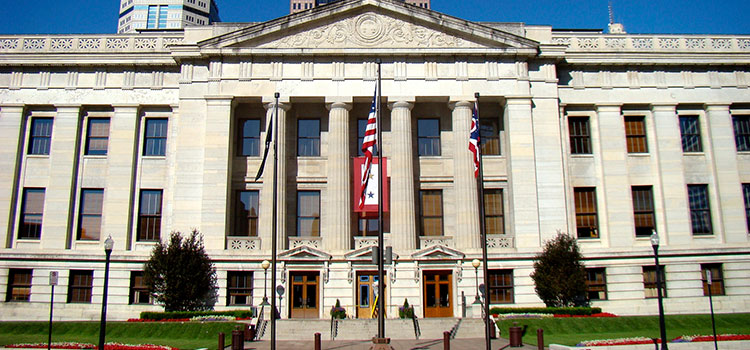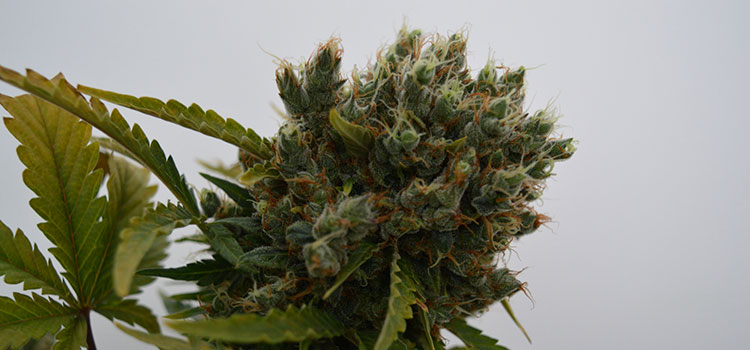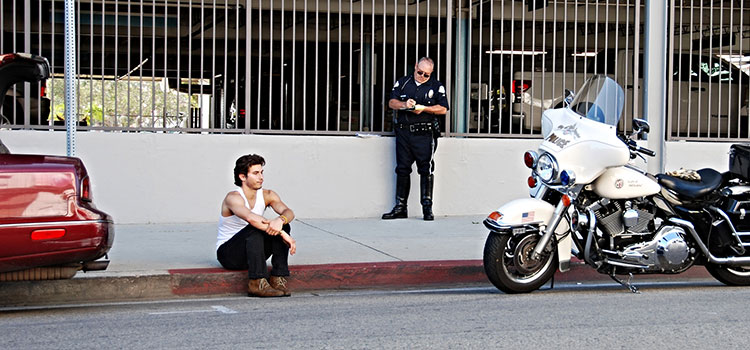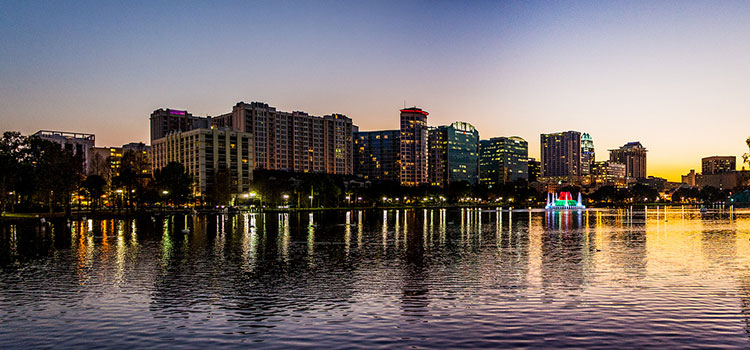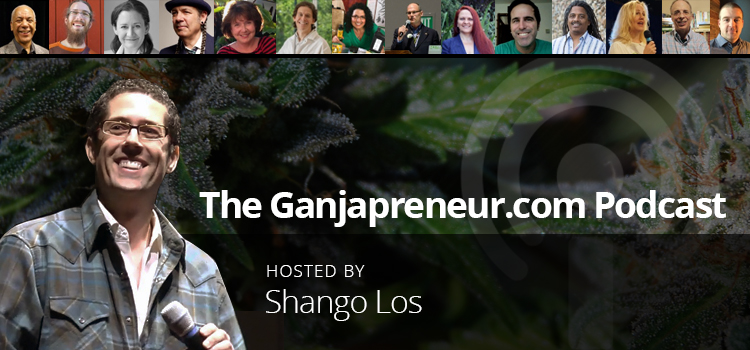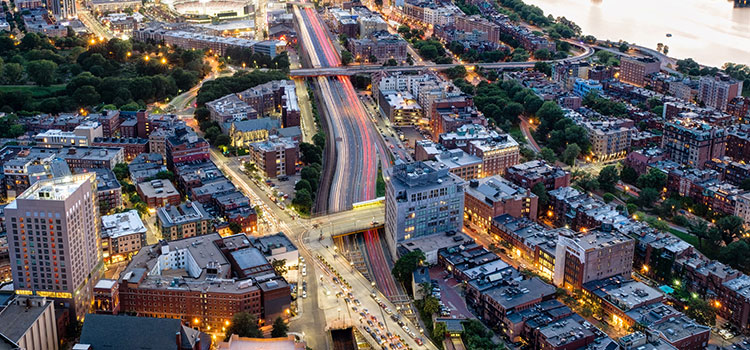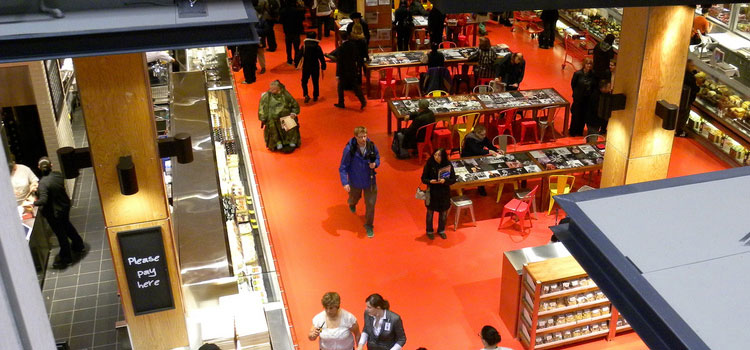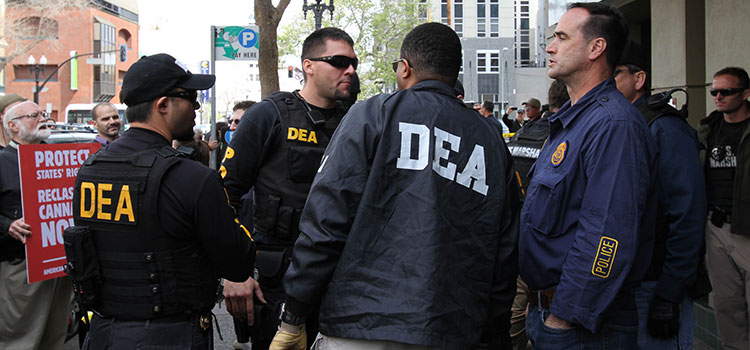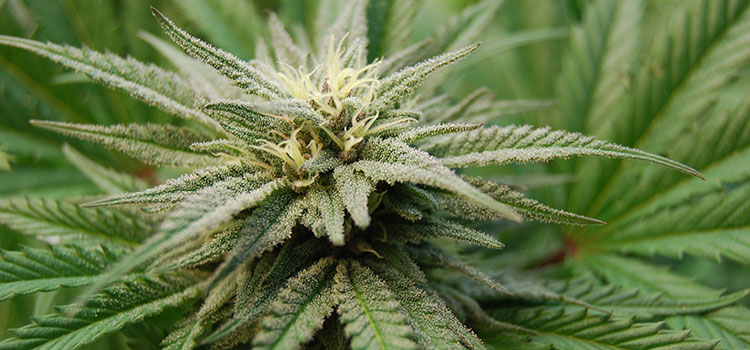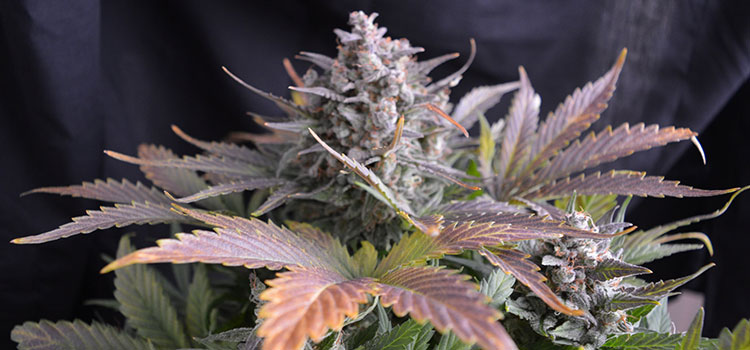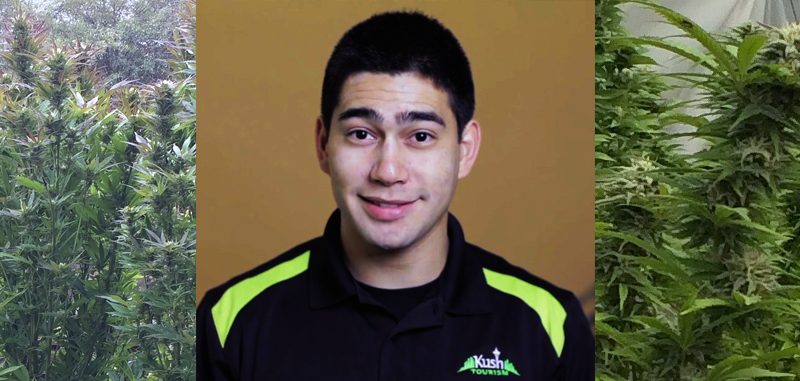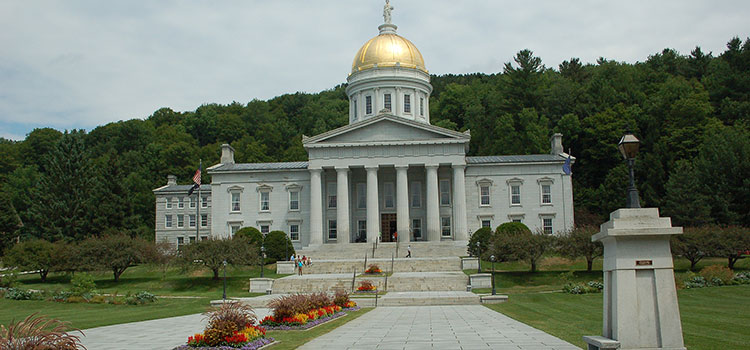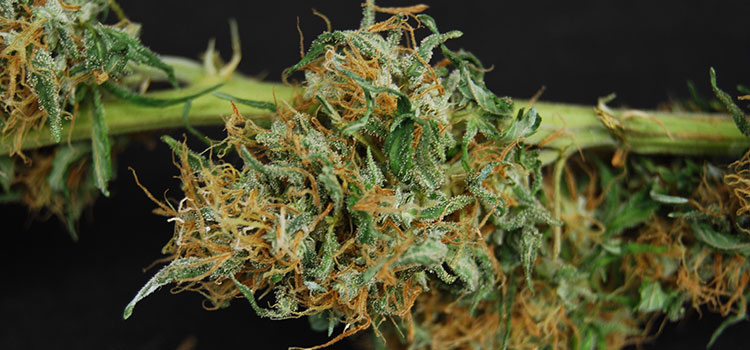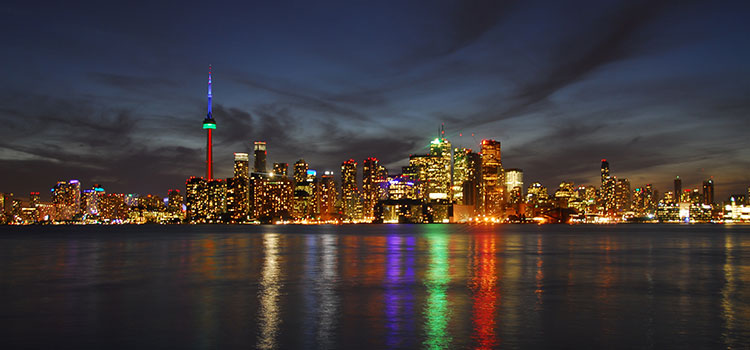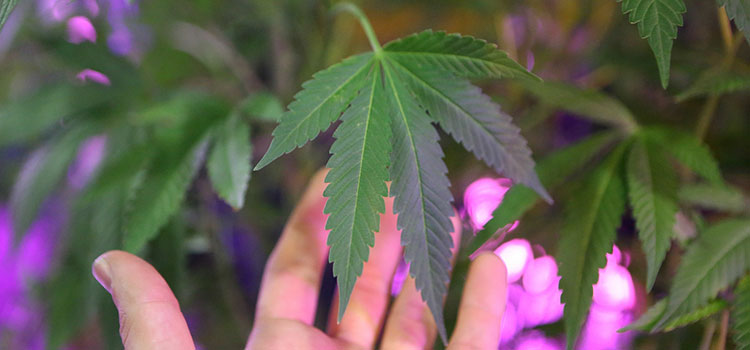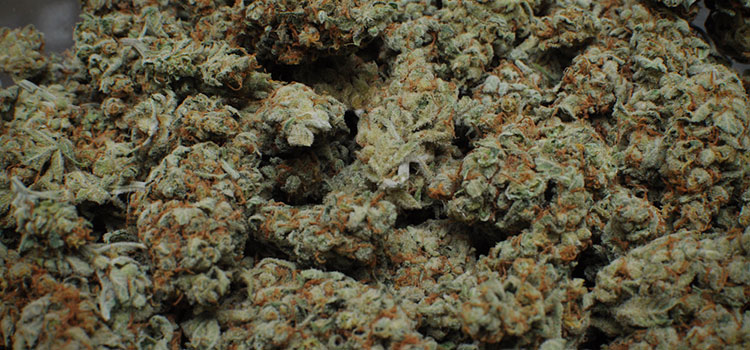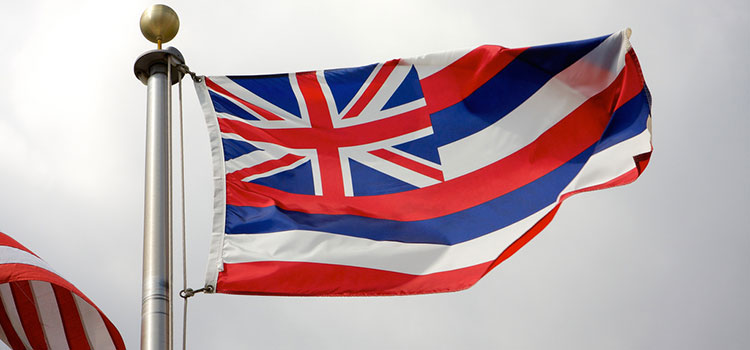Michael Gordon is the co-founder of Kush Tourism, a national cannabis tour company. When Washington and Colorado voted to legalize cannabis in 2012, many knew there would be opportunities related to tourism, both in the sense that many people would want to visit a place where they could consume legally, and also in the sense that people would be curious to see behind-the-scenes at these new, legally-operating cannabis farms and retail shops. Michael recently joined our host Shango Los for a conversation about how Kush Tourism has found its niche, what a cannabis tour generally involves, and more. Listen to the episode below, or scroll down for the full transcript.
Subscribe to the Ganjapreneur podcast on iTunes, Stitcher, SoundCloud or Google Play.
Listen to the podcast:
Read the transcript:
Shango Los: Hi there, and welcome to the Ganjapreneur.com podcast. I’m your host, Shango Los. The Ganjapreneur.com podcast gives us an opportunity to speak directly to entrepreneurs, cannabis growers, product developers and cannabis medicine researchers, all focused on making the most of cannabis normalization.
As your host, I do my best to bring you original cannabis industry ideas that was will ignite your own entrepreneurial spark, and give you actionable information to improve your business strategy, and improve your health, and the health of cannabis patients everywhere. Today, my guest is Michael Gordon. Michael is co-founder of Kush Tourism, a national cannabis tour company. Their tours create the opportunity for locals and tourists to get behind the scenes of the new cannabis industry. Welcome to the show, Michael.
Michael Gordon: Hi, Shango, thanks for having me.
Shango Los: So, Michael, I’ve been watching Kush Tourism grow over the years. As your business model grew and evolve, and I suspect that the history of your company, which we’ll talk about, has many lessons for cannabis entrepreneurs that are going to be in the early days of any state that’s normalizing. Let’s start by establishing what Kush Tourism is today. What are your offerings?
Michael Gordon: Shango, we started as a tour company a few years ago, and we’ve really been expanding. Our roots here, of course, are in Seattle, Washington, one of the first two states to legalize cannabis. We offer a behind the scenes tour, kind of like a winery or brewery tour, we get to introduce you to that master grower, to somebody who does oil extractions, glass blowing. So, you can learn everything from A to Z of how it’s made.
We’re able to offer this sort of experience in four states now, because we’ve got Colorado, Washington, Oregon and Alaska coming online. No matter where you go, you’re going to have access as either a … Say you’re a curious adult, and you want to take your wife out on something fun, or maybe you’re that entrepreneur who really wants to understand how a new industry’s evolving.
It’s a really great personal opportunity to go behind the scenes.
Shango Los: You’re website shows that you are in these different states, and as the states normalize, I’m assuming that your … That the tours evolve over time. Because, it takes a while, so the cannabis is legalized, but then there are not companies there for you to give tours at for day one. What do you see as being the key markers, when you know that it’s time to set up a tour in a new state?
Michael Gordon: That’s a great question. Boy, and it really has evolved here in Washington state. Our first cannabis tour here in Seattle was two months before the first retail store opened up. You could imagine the challenges of: What is a cannabis tour? At that point. What is cannabis culture, how do you define that? One of the nice things, especially here in Seattle, is cannabis culture has been around for such a long time. You look at Seattle Hempfest, which has been here for 20 plus years. You’ve got Jimi Hendrix. We’ve had some of the best bud up here in the North West between BC and Humboldt for a very, very long time, so it’s deeply rooted in our culture.
The first step was saying, “Hey, we want to share this culture with everybody.” You can do that by talking about the medicine, by going to testing facilities, by going to a place like Hempfest Central. As the things started to evolve, we had retail stores open up so people could legally buy their product. We started having growers who understood that it was important to get their brand out there and share education and awareness around the plant. The same thing happened for processors.
Getting the magic spark is not only having tourism available, but having an industry that is open to the idea of education. That’s the foundation of everything that we do, Shango, is making sure that we’re providing access to something that’s typically been black market, and hidden behind closed doors, and saying, “Hey, you know what, guys? This is a mother. She worked as a lawyer for twenty years, she coaches her girl’s soccer team and softball team, but she also is a master grower.” Incredibly professional, she’s on top of her game, and she wants to tell you all about it.
When you’re able to expose people from all over the world to that sort of individual, all the stigma disappears.
Shango Los: I was going to say I like that idea too, because what you’re doing is you’re making the industry seem less scary to newbies, which is really the whole point of normalization, so that the stigma’s taken away.
Michael Gordon: Sure, and it doesn’t even just seem less scary, it is less scary. It’s a highly regulated market, the people who are in the legal industry right now have been working extremely hard and diligently, and that’s the only way they got there. So, we don’t see people running around with guns and masks, it’s quite the opposite. You might get sandwiches at a local shop after work and smoke a joint, but there’s no scary gangster mentality. It’s all but disappeared here in Washington.
Shango Los: You mentioned that your first tour happened about two months before the first store opened, but I’ve seen your company name around longer than that. Were you guys giving tours in the pre-recreational market when it was just medical?
Michael Gordon: Yeah, absolutely. It was so much fun, because we were able to take people into a medical facility, and say, “Hey, here’s what the candy shop looks like.” There are 40 jars here, the strains … This is why CBD is good, here are the cannabinoids, and really provide access to this education for the first time anywhere in the entire world. But, there are also the challenges, because your average person can’t go into a medical store and buy pot, which of course they’re interested in, but I’m not sure if you guys are familiar with companies like Winterlife Coop back before recreational stores opened up. There were these deliver companies in Seattle, Washington. They were providing what was dubbed as a stop gap measure.
It was legal to sell weed, it’s legal to smoke it, it’s legal to buy it, but there were no stores open, so these delivery services started saying, “Hey, pot is medical for everybody. We’ll start delivering it to you.” They were placing ads in magazines and newspapers, they had a website, it was like, “Holy cow. What is happening in this industry right now?” I can’t believe these guys are professional drug dealers with a website, and not getting in any trouble. Although there weren’t retail stores opened up, surely we could point them to The Stranger back page, and say, hey, look at all these retail stores. Sorry, look at all these delivery services. I know they’re not probably legal, but the police chief has said that they’re providing a stop gap measure. Here’s an issue of The Stranger, you guys have fun and stay out of trouble.
There was always interesting workarounds. I’ve never been able to buy, sell or touch marijuana, but I’m here on the education side. If you’re looking to just get higher than you’ve ever been before, maybe this tour isn’t for you. If you’d like to understand what lights they use in a grow operation, and why they take clones from where they do, you know, really focused on education, because you can get stoned back home, but you can never walk into a grow operation and ask those intimate questions.
Shango Los: What has the transition been like for you from dealing with medical company owners, and then going through the transition to working with recreational company owners? In my experience, and this is a generalization, they’ve got different approaches to the business, and I’m sure that with you bringing people into their operations, you’ve probably noticed a difference as well.
Michael Gordon: Sure. We always highlight the best in the industry that we have. For instance, I know Stephanie Viscovich was so kind to open her doors with her dispensary back before the recreational stores opened up, and she had such a heavy influence on medical. We didn’t deal with any of the shady folks, everybody was incredibly helpful and open armed, but what we’ve seen with the transition is an ability to better leverage our resources.
For instance, we produce cannabis tourism maps, so if you come into a legal state, you know where you can make a purchase, what the local laws are, what you can and can’t do. Oh gosh, Shango, we probably distribute 400,000 plus of these maps a year in three different states. Probably 2000 hotels. When I’m able to leverage that and say, “Hey, you’ve got great operation, but now I can give you advertisements and it gets printed 200,000 times every six months,” I’m able to drive these guys more value.
Then I say, “Hey, we take you to the grower. Now we can go to the retail store. You can actually try Goldstar Cannabis’ product. You saw where it was grown, you had this intimate connection with the master grower, and it produces value on all sides.” So, that’s been the most exciting part, is being able to create more value for everybody involved.
Shango Los: You know, I was thinking about the flyer that you were just … The map that you were just describing. The entrepreneur in me went, “Oh, there’s another revenue stream as well.” In the early days, as you were growing, did you find that you needed to make sure that you could develop other revenue streams in addition to the tours? Because selling advertising into your map, and then distributing it in other states, that’s almost an entirely separate business, but under the same idea, and you probably have got not only more legal flexibility, but also it’s an entirely different kind of revenue stream.
How diversified were you guys? Or, were you really, majorly focused on doing the tourism, and moving human bodies around the city?
Michael Gordon: We first got our foot into the industry via the tours. It was incredibly opportunity for PR when everything was becoming legal for the first time. We were lucky enough to have the first tour in Washington state to a slew of an incredible amount of media. We’ve been in every TV show, every radio channel, up until the point where the History Channel featured us this year, which was an incredible opportunity. But, tours are good. It creates a good job, but it’s been very difficult. It was an uphill battle trying to make a living.
One of the ways we wanted to promote our tours were in the hotel rack cards. When you were in the hotel lobby and you see them, “Let’s go whitewater rafting, let’s check out a winery tour,” I wanted it to say cannabis tours, try out the Kush Tour. The reality was though, that that startup point of our life when we were working 70, 80 hours a week, getting paid $500 a month, it was a beautiful thing that I’m so happy we’ve made it through. We couldn’t afford to advertise, and this is where one of our first big pivots occurred, Shango.
We wanted to do these brochures, but we couldn’t afford it, so what we did is we worked with a few of the local retail stores. We said, “Hey, why don’t we work together? I’m going to advertise you guys on these brochures, I’m going to advertise my tours, then we’re able to split up the cost of this distribution.” Well, that ended up being one of our biggest revenue streams. Stores really enjoyed it, it drove a lot of businesses. We work very closely with the Seattle Concierge Association as well. It worked so well to the point that we were like, hey, you know what, we should really pursue this. Now we’ve got over probably 175 advertisers in three different states, we’ve been welcomed with open arms to this. This distribution was difficult to achieve, Shango.
I called these guys every two weeks for six months before they gave me the green light to even distribute in those locations. It’s always been an uphill battle. Goodness, once the flood waters break through, you can recognize some great opportunities. We also had the good fortune of having strong online resources. If you’re looking up, if you come to Washington, recreational cannabis we pop up number one. That holds true for Oregon and Vegas and all these other states coming on. We’re able to drive a huge amount of business via our resources, in addition to our tours.
Shango Los: I think another good thing to point out here is the importance of building your alliances within the cannabis community, because you solved a capital issue, meaning you didn’t have enough money to get the maps printed, by instead of fundraising and asking for money, you went and you created agreements with other cannabis companies who shared your ideals and your goals; and then, were able to throw all of your money into the kitty to make the maps yourselves. I think that a lot of entrepreneurs, when they’re starting out, they’re thinking about all the money that they need to raise for this project or that project, and I think that’s a really good example how working together to help your allies get what they want can help you get what you want.
Michael Gordon: Yeah. There are two kind of lessons that we really learned in this. One has to do with MVP, which is called a minimum viable product, and the other one is an advertising agency model that we follow. The MVP is how do you test something out really, really fast. We’ve got this idea for the math, but how do we test it without spending $20,000 and four months to do it? Then, actually, we worked with a couple of local universities, and we postured that same question to it: How do you test this map without actually paying $20,000, and how fast can you do it?
The answer is it costs about $40 and takes about a day and a half. You find a couple people who are willing to work with you, you design something, go to FedEx, cut it up, and you put it in the connoisseur’s hands. You find out whether or not people are willing to pay for it, you find out if it’s an effective resource, and you’ve learned it in 36 hours. As a startup company, it’s important to accelerate your learning processes.
I always encourage you guys out there, especially in the cannabis industry where things are rapidly changing, test something out. It probably only is going to take you 24 to 36 hours to do it. Learn what you can from it, and then make your next decision.
Shango Los: That’s great.
Michael Gordon: The other piece to that, Shango, is the advertising agency model. We saw an interesting thing happening in print. Say you advertise in a local publication in your retail store. While you’re paying for distribution that’s in Seattle … you’re reaching this huge demographic, when the reality is you probably only want to target the people who are, say, four miles away from your store. That’s where most of your business is going to come from.
If you’re able to distribute that cost of the distribution between fifteen stores, you’re only paying for that distribution that’s around your store. You’re able to carve out that little piece of distribution you want without having to afford the entire page. Those two ideas put together really enabled us to pursue these maps.
Shango Los: That makes sense. It’s a highly targeted group. Not only is it targeted to tourists who are interested in cannabis, but then it’s also geographically targeted as well, so that they’re closer to your store.
We’re going to take a short break and be right back. You are listening to the Ganjapreneur.com podcast.
As a cannabis entrepreneur, you know how challenging recruiting quality talent can be. Your day’s already busy enough, and yet there is an ever growing pile of resumes on your desk, and your team is begging you to hire more help. Hiring the right person can make a profound impact on your company. There’s no reason that you have to suddenly be an expert hiring manager. Not when there is Viridian Staffing.
Viridian Staffing recruits solely for adult use cannabis, medical marijuana and hemp companies, and those that service them. Viridian Staffing’s recruiters each have over ten years of experience, and they will use that experience to recruit the kind of employees that will make you look good. Whether you’re looking for a master grower, extractor, grow room support or trimming, Viridian can find an appropriate person in your area. They can even recruit administrative or graphic design professionals who may not need cannabis experience.
Because you are a startup, you may also need human resources help for a while. Viridian Staffing can make sure that your HR files are complete, and keep you out of trouble with state and federal employment requirements. Because the cannabis industry is booming, cannabis recruiting companies are popping up all over the country. But, good marketing does not mean good recruiting.
Some of the recruiting shops that have opened are run by novices who do not yet have a thorough understanding of employment law, and the complexities of hiring for cannabis. Don’t hire an amateur to find you a professional. Consider Viridian Staffing to make that stack of resumes disappear, and complete your team with exactly the hire you were hoping for.
You can find out more at Viridianstaffing.com. That’s V-I-R-I-D-I-A-N staffing dot com.
And now, back to the show.
Welcome back. You are listening to the Ganjapreneur.com podcast. I am your host, Shango Los. My guest this week is Michael Gordon, co-founder of Kush Tourism. Before the break, we were talking about how your company has grown, and the product that you deliver both to tourists in the way of taking them behind the scenes of the new, legal cannabis industry, but also the outreach that you’re doing for your cannabis partners, by putting a cannabis map in the hand of tourists that may or may not actually ever end up on the tour.
You know, Michael, I was thinking, during the break, that there’s got to be some obstacles that even though cannabis is legal in the states that you have tours in, that there still must be some obstacles, either legal or cultural, that are still causing you some grief. Can you give me an example or two?
Michael Gordon: Oh, yeah, absolutely. It’s a funny thing. You would think being in the ancillary business, not buying, selling or touching cannabis, you wouldn’t have many obstacles. But, my goodness, that is not the truth. Everything from banking, can I advertise here, what does the insurance policies look like, who’s willing to work with us? Has been a major headache. To give an example, I’ve been trying to work with Visit Seattle for the past, oh gosh, two years now. And say, “Hey, can we advertise our tour here? It’s totally legal. We don’t buy, sell or touch cannabis.” We’ve climbed up the flagpole, I’ve taken the VP on a tour, the VP bought some cookies, gave one to the president as a joke, but until I get the board of directors on the tour, it probably won’t happen.
We see these obstacles all the time, Shango. I think one of the biggest ones that we had to overcome was, in cannabis tours, when there’s a certain amount of infrastructure that needs to be established. For us, that’s tours, activities and accommodations. If you come to Seattle or Colorado or Oregon, you need a place to stay where you can consume cannabis, you need things to do to really create that whole picture. If you go to Napa Valley, you can stay at the vineyard, you can do the tasting tour. You’ve got an incredible vacation plan.
What we did is we had to go out there and hit the phones up and say, “Hey, guys. Here’s our idea.” Cannabis tours, and people are going to be flocking from all over the world. Do you know someone who’s been to Amsterdam? It’s not because of windmills and bicycles, it’s because they have pot shops. So, we started creating this buzz. We said people are going to be coming, these are professionals, they need a place to stay, they need things to do. We started calling up everybody and pleading our case: “Would it be okay if someone smoked pot on your property? Maybe in the backyard? Not a big deal.”
We started developing this infrastructures of bed and breakfasts. Of hotels that are willing to work with us, and finding activities like the Kush tour, like pipe blowing classes. High painting down in Colorado. Where people could actually have a great time and enjoy their vacation.
I’d say that was one of the biggest obstacles, is it was just developing the idea of what is cannabis tours? Getting people on the bandwagon. Of course, now, people understand what Kush Tourism is, and they travel from all over the world to experience it, so thankfully that ship has sailed, but there’s still a lot of room to improve.
Shango Los: You know, I think that a lot of people, when they are considering getting into cannabis, they’re just thinking: Oh, I’m going to get in, I’m going to set up shop, I’m going to sell my stuff, I’m going to get rich. They don’t realize that we’re still at the pioneer level of this game, where especially if you’re in a normalizing state, but even in the already legal states that if you’re moving into a new niche of the industry, that you yourself are probably going to have to be the person to normalize it, just as you described, where you were the person reaching out to bed and breakfasts and say, have you ever considered allowing cannabis, because you needed to get all those people on the board, so the environment of Seattle as a whole was welcoming, so that you could even get your customers in the city to offer them a tour. I don’t think a lot of people consider that.
Michael Gordon: Yeah. I think that’s right. What it really boils down to is if you come into an idea with your heart and soul, something that you’re really passionate about, it’s something that the community will embrace and support you in. You couple that with a good idea and 60 to 80 hours of work a week, and you can do that for a couple years, there’s a good chance you’re going to make it through. What a cool time to be in this industry. Everybody working now is a pioneer. We are creating the Jim Beans and the Anheuser-Busch’s of the cannabis industry, but we’re also creating the Legion Brewings, we’re creating these little craft companies.
It’s a big ball of Play-Doh. Whatever you want to do right now, if you’ve got a dream and you know how to execute it, you can make it true. That’s the most fun, exciting part of this industry.
Shango Los: Early on, you and your co-founder, Chase, were constantly weighing risk. There’s business risk, yes. There’s, okay, do we have enough finances to last until we’re going to get our next infusion of capital. There’s that kind of risk. Then, there’s also the kind of risk where, is the city of Seattle going to bust us for coming in contact with the cannabis, and maybe being too fragrantly making money around it.
Not to say that the city of Seattle ever had those thoughts, but two years ago, we weren’t really sure how these laws were going to play themselves out. What did you and Chase do to determine how much risk you were willing to experience to make this happen?
Michael Gordon: That is a great question. For something as volatile as cannabis where you could end up in federal prison, we played it very safe. Never has cannabis consumption been a part of our tour, because in the state of Washington, according to the marijuana clubs law that was passed, it would be a class C felony to directly or indirectly contribute to somebody consuming cannabis in a public place with any sort of pecuniary gain, any sort of financial incentive is what that means. I don’t want a class C felony. I don’t want to go to jail. Goodness knows the business is, my opinion, it’s not worth it to me. The risk isn’t worth it.
You still have to play that line of the gray area of hey, I’m doing this the right way, I’ve read the laws. Through and through I’ve gotten second opinions on it, is it okay what we’re doing? And, the reality is, yeah, it is okay, and we’ve played our cards right as a certain bit of luck, but it’s also the approach that you take. If you come into this tour idea and you’ve got girls with pasties on and you’re handing out joints and blunts because you think it’s okay and it’s the gray area, you’re painting the picture of the cannabis industry that nobody wants. Nobody from the city wants, nobody who’s looking at you as a case study saying, “Here’s what cannabis tours could be,” wants to see the shady business.
If you are bringing professionals in … We see the lawyers, doctors, couples. A disproportionate number of veterinarians. When they see this group of people coming, there is no stigma, it disappears entirely. We haven’t had a single negative news report come out ever. I think they look to our company and say hey, these are the guys doing it the right way. They’re the pioneers showing us what cannabis tourism is. What is the potential of this industry? It’s really important, as somebody who is an advocate for cannabis legalization for medical … As an advocate for seeing the stigma disappear, we take the right approach. It’s our responsibility to be promoting the best that the cannabis industry has to offer, and help guide it in a positive direction.
Shango Los: You didn’t really ever go under the radar. As a tourism company, you had to be blatant and out in the media from day one. I’m curious to what degree you interacted with the city of Seattle. Not necessarily asking for permission. Maybe you did. Did you ever reach out to them to say, hey, can we get an informational meeting just to let you know who we are. How did you interact with the city?
Michael Gordon: We certainly have spoken with Pete Holmes and we’ve spoken with some of the marijuana policy people, but the reality is, because we are such an ancillary company, we don’t buy, sell or touch the product, there’s very little risk involved. It’s like a sightseeing tour. All we do is we talk about weed, granted, it’s incredibly in depth, and we get to show you some things and it’s really interactive, but at the same time tours aren’t regulated. Information is not regulated, so we were able to skirt those laws.
Staying in compliance with the Washington department of transportation and all that has it’s own challenges as well. That’s extremely difficult to do. We never had a big problem with staying in compliance when it has to do with the cannabis industry.
Shango Los: Right on. That’s good to know. It also probably helps out with the idea that you guys wanted to keep your risk as low as possible as well. It’s time for us to take another short break. We will be right back. You are listening to the Ganjapreneur.com podcast.
The Ganjapreneur.com podcast is going to sound a bit different going forward. We are now producing our podcasts in house, so we can have more control over how they sound. We want to make them an even better listening experience for you. That means the show is going to sound a little bit less produced and whiz bang, and a bit more down to Earth and pleasant on the ears. We didn’t used to control the commercial content, and we, and many of you, thought it sounded out of sync with the rest of the vibe of the show.
Going forward, during the commercial breaks, we’re going to bring you companies that we believe in. We’re going to tell you about them, we’re going to tell you how to get in contact with them, and then we’ll get right back to the show. Pretty simple really. This change also means we are booking our own commercials now. If you want to reach out and connect with our audience in the most personal way we can offer, drop us an email at grow@ganjapreneur.com, and we can talk about you becoming a commercial sponsor of the podcast.
It is our hope and intention that these changes will make the podcast an even more pleasant listening experience.
Thanks for listening and being part of the Ganjapreneur family. Now, back to the show.
Welcome back. You are listening to the Ganjapreneur.com podcast. I am your host, Shango Los. Our guest this week is Michael Gordon, co-founder of Kush Tourism.
Michael, we’ve gotten through the business aspects of it, but I know that there are people listening that are thinking to themselves, “Can I get stoned on the bus?” You’ve already been clear that you guys don’t provide cannabis, but I do know that retailers are part of your stops. So, break it down for us. For people who want to know, blatantly, can they do the tour high, and when can they get stoned? How does that play into the tour?
Michael Gordon: We eluded to earlier the fact that you’re not allowed to provide any sort of place where someone for to smoke that’s in public, or if you have any financial gain to be had. Unfortunately, the answer to that is there’s no consumption allowed between the start and end of the tour. With that being said, have I ever had a customer show up to our tour high? Most of them. Have I ever had people smoke after the tour is over? Probably 99% of them have found a way to consume … I think here in the state of Washington it’s like a $27 fine for getting caught smoking in public. I don’t know of anybody who’s gotten a ticket, but it’s surely on the lowest of low priorities.
Consumption is really not the focus of our tour. You can go home, you can get high, you can hotbox your car if you really want to, although it’s illegal and you’re not supposed to. But, what’s truly unique is the experience we’re able to provide and just the intimate acts as to the behind the scenes look of the industry.
Shango Los: Do you find people are waiting for the tour, so it hasn’t officially started, and people are toking up because they already know that they can’t toke on the tour. The folks are told in advance that you’re not going to be hitting your bong in the van?
Michael Gordon: Yeah. I think that most of the people already have shown up high. It’s never a disappointment. The tour is so interactive. You’re talking with the master grower about how they do clones and how they trim their buds and why this drain looks the way it does, and why should you grow this drain. There’s almost no time for smoking. Smoking takes away from the experience. Would I like you to be able to consume pot on the tour? Oh, heck yeah, I would love that, and at some point we’ll have those laws changed, it’s obviously going to come at some point. We’ll see these vapor lounges open up.
I know that we had Club Zero here, give it a shot in Seattle, and there was a very brief window of time where you had a place where you could go and consume it. It wasn’t a class C felony. Goodness knows, as soon as it happens again, we’re going to be there on day one for our clients.
Shango Los: Do you give your guests a don’t get too high talk at the beginning to put them in check?
Michael Gordon: We always preach responsible consumption. I’d say, typically, we don’t have the massive stoners who are taking gram dabs on our tour. We have folks who smoke in the evening, they smoke occasionally. Maybe they smoke five joints in a day, but they aren’t the kind of folks who are going to be stuck to their couch and that’s their preferred method of living.
These are the boomer population. These are the folks who are out there wanting to try new foods, explore new places, travel the world. I forget the question to be honest, Shango.
Shango Los: That’s all right. The question was just do you give them an orientation to not get too baked? You’ve certainly answered that. Let’s say I was going to go on the tour today. If I was going to go on the tour today, where would you take me in, let’s say, Seattle?
Michael Gordon: Great question. The tour is about a three and a half hour experience, and it focuses on the how it’s made of cannabis. We start at The Boro School of Glass here in Seattle. This is one of the premiere pipe blowing schools. It’s run by Nathan Aweida, who goes by Nate Dizzle. The inventor of the SwissPerc which is this incredible percolation device, if you’ve never tried it. We take you through how to make a pipe in the first pipe blowing school here on the west coast. You can see it from start to finish. Heck, you can even purchase your pipe and smoke from it later that day, if you’d like.
From there, we visit Dawg Star Cannabis, and learn how plants are grown, how they are brought into flower, how they’re trimmed, how they’re cured. Once again, it’s the how it’s made tour. We’re able to talk to you … Jeff there, their master grower, who’s actually a professional arborist for over 30 years. I know Dawg Star was looking to bring somebody who wasn’t within the industry to bring this incredible cultivation knowledge in a different approach. Jeff does a great job.
I know that their Blue Deisel … just tested over 30%. They tested it ten times to see if that was true. From there, we always try to involve a processor, so they’re able to see how cannabis oil is made. I know there’s a big negative stigma with BH, or Butane Hash oil, Butane Honey oil, because people are blowing up their houses. You’ll see in the legal industry that that is so regulated. They’re in blast proof rooms, there’s spark free lights, the air is being circulated every fifteen seconds.
It’s important to understand that dabbing has it’s uses. Not only for medical patients who need that level of potency, but because you’re removing plant matter from that equation, if you can figure out how to dab in moderation, then it’s actually going to be a cleaner high for you.
From there, we’ll of course visit one or two retail stores. I think it’s important that you have an opportunity to buy a product. There’s so many nice ones to choose from here in Seattle. We’re very, very gifted and lucky to be able to show that as our industry. We’ve tried bringing a couple Seattle viewpoints as well. So, you guys who are traveling from out of state can come here and see the sights, take that photo in front of plants, but also with Seattle as your backdrop.
Shango Los: Awesome. It actually sounds like something that I would enjoy myself.
Michael Gordon: Shango, you should come on tour sometime, I would love to have you.
Shango Los: I was actually a little jealous. I was stoked because you guys made a tour donation to the Vashon Island Marijuana Entrepreneur’s Alliance meeting last week that I was there. When it was announced that there was a free tour that you guys had put on, everybody was all excited to win the tour. Yeah, I’m going to have to get my act together and come on the tour myself.
Well, Michael, we have reached the end of our time. Thank you so much for being on the show. I’m really appreciative that you took the time to be with us, and explain to us not only how the tour works, but the trials and tribulations that you’ve had in getting it set up.
Michael Gordon: Yeah, thank you so much for having me, Shango. It’s exciting to be able to share our experiences, especially as an ancillary company, we have the opportunity to work with everybody. It’s a gift and a blessing. If you guys out there are trying to join the cannabis industry, give it a shot. It’s a once in a lifetime opportunity right now.
Shango Los: To find out more about Kush Tourism, you can go to their website at kushtourism.com. You can find more episodes of the Ganjapreneur podcast in the podcast section at Ganjapreneur.com, and in the Apple iTunes store. On the Ganjapreneur.com website, you will find the latest cannabis news, product reviews, and cannabis jobs updated daily, along with transcriptions of this podcast.
You can also download the Ganjapreneur.com app in iTunes and Google Play. Do you have a company that wants to reach our national audience of cannabis enthusiasts? Email grow@ganjapreneur.com to find out how.
Today’s show was produced by Pat Packet, I’m your host, Shango Los.
